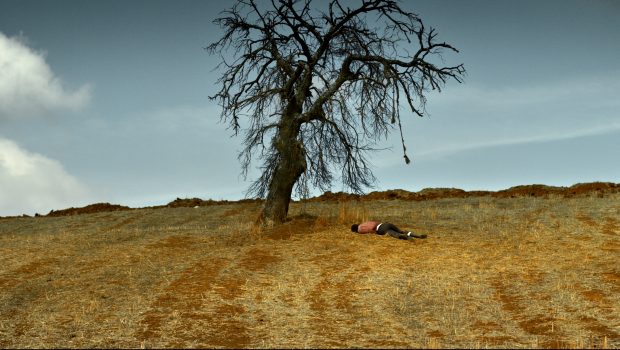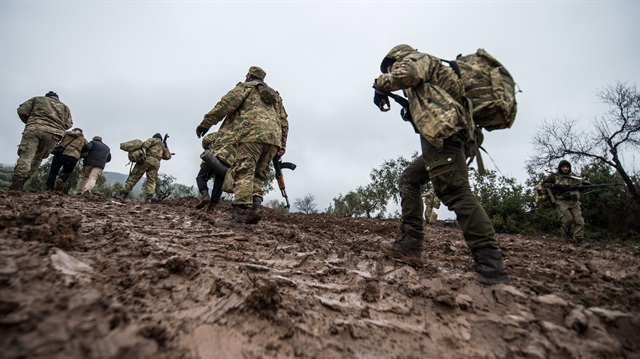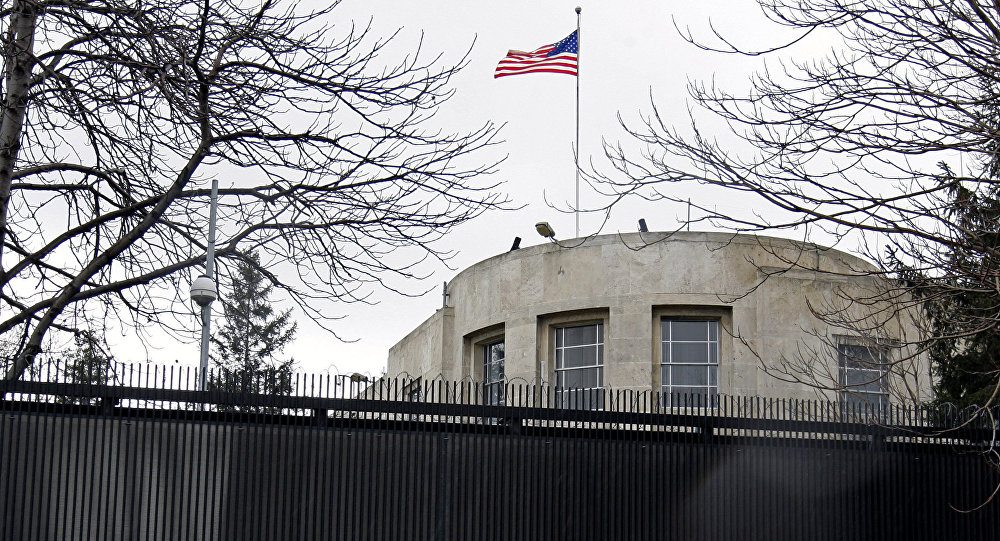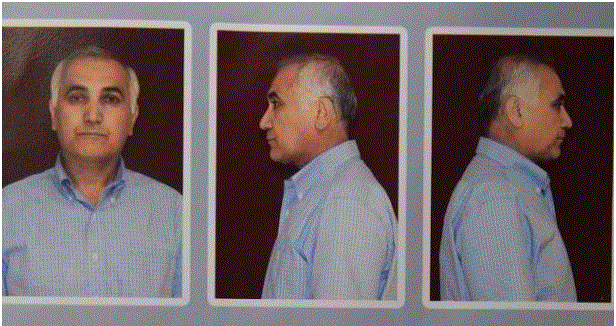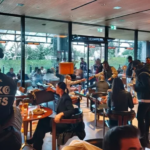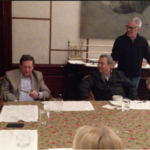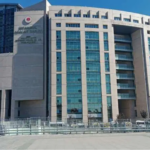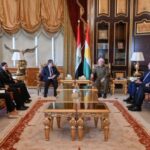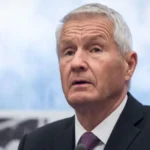Over the past two months I have written several columns for Serbestiyet (1) that discussed how Orientalist ideas were still a dominating feature of the manner in which Turkey is represented in the Western press, and how Turkish elite self-orientalism is the domestic obverse of that Orientalism. Now I would like to delve more deeply into the intellectual essence of the Western press narrative on Turkey, and once it is to Edward Said’s works that I shall first be turning.
In the past year I have also published several critiques, mostly focused on the NYT, of Western press coverage of Turkey (2). Behind those essays lies a simple emotion: frustration. The frustration I feel stems from the fact that what I explain in those essays nothing new. Edward Said explained all this 35 years ago, but even many people who consider themselves leftists, who are (or should be) generally aware of Orientalistic ideological distortions, or are (or should be) sensitively concerned about the countries and societies in this part of the world, have apparently lost track of how Said’s analysis of Western media tendencies remains urgently relevant to the whole situation, and specifically for contemporary Turkey.
In 1981, Edward Said published Covering Islam, the third of what he described as a trilogy of studies on the manner in which the West, and specifically the U.S., interacted in the Modern Era with the East and the Muslim world (3). In that book, Said examined how the Western media misrepresented the Islamic world to its consumers, often with the aid of academics coming from the field of Middle East studies. What strikes me about Said’s text is that I could (exaggerating only slightly) go through the book today, replace “Islam” with “Turkey,” and still have a coherent study highly germane to the manner in which the Western press has covered Turkey during the AKP years.
Because Said’s text is so pertinent, I will discuss his main points as he wrote them originally, but adapt them to today’s Western press narrative concerning Turkey. I’ll use the same subtitles from Said’s book, but I’ll keep substituting “ the Turkish Republic” for Said’s original designations. As a result, this article will reflect on the first section of Said’s book, which I will title The Turkish Republic as News.
Said begins his first chapter by providing an example of a racist, anti-OPEC television advertisement from mid-1980, and then summarizes how Orientalist ideas were produced for several centuries. The first big point he makes is about the difference in Europe’s and the U.S.’s historical interaction with Islam. Europe, and especially Britain and France, had colonies in the Muslim world while Russia had its own vast internal Muslim population, but the U.S. had no truly comparable direct, concrete relationship with the Muslim world. During this conversation Said notes, on p. 12, that the U.S., during the mid-to-late-1970s, experienced a particularly striking surge of interest in the Muslim world, notable precisely because of the U.S.’s lack of an imperial past vis-à-vis Muslim peoples and societies.
Since the early 1980s, of course, the situation has changed as the U.S. has become entangled with the Iranian Revolution, sent Marines to Lebanon, aided Afghanistan’s resistance against Soviet occupation, and then launched the First Gulf War. After attacks from Al-Qaeda in the 1990s, the U.S.’s disastrous intervention in Somalia, further Al-Qaeda attacks, the decade-long upheaval in the Balkans, and the 11 September 2001 attacks in New York, the U.S. invaded first Afghanistan and then Iraq. At around the same time, Muslims began to constitute an increasingly visible aspect of U.S. society. This year, for example, the New York City school network began to observe the two main Muslim holidays (Eid al-Fitr and Eid al-Adha) as system-wide holidays. In short, America’s experience with Islam has become far more concrete.
The same cannot be said for America’s relationship with Turkey. Turkish people emigrating to the U.S. are known to be easily and quickly assimilated, and only in the past decade has a more effective Turkish lobbying apparatus in Washington D.C. emerged. Even though the numbers of U.S. citizens traveling to Turkey as tourists, as students, or for business has increased in the past three decades, overall the impact on U.S. perceptions of the Turkish Republic is debatable and probably negligible. The politicized sections of the U.S. population noted events such as Turkey’s 1974 invasion of Cyprus, the failure of the 1 March 2003 Turkish parliamentary resolution, and the international uproar concerning Kobane in September-November 2014, but these events did not directly affect U.S. citizens. In general, U.S. society still associates Turkey with the Ottoman state’s deportations and massacres of its Armenian population during WWI, as well as the film Midnight Express. Few are aware that Turkish soldiers fought with distinction alongside U.S. forces in the Korean War. Probably the greatest boon for Turkish public relations in the U.S. has been the fabulous success of Hamdi Ulukaya’s Chobani yogurt brand (even if it is sold as “Greek” yogurt for marketing purposes and Ulukaya himself is Kurdish). In sum, U.S. experience of Turkish society is only marginally more widespread or concrete than it was when Said was writing in the early 1980s.
Said then moves on to address the lack of intellectual depth in academic work on Islam, and the historical connections between Orientalist studies and Western military-political projects in the Muslim world. On pp. 26-27, Said remarks on the American consequences of this phenomenon. because the U.S. found itself responsible for picking up the pieces after WWII, U.S. policy makers had to embark on a crash course of learning about a myriad of foreign cultures. The essential reason was political: U.S. policy makers had realized that economically underdeveloped countries had a greater chance of falling into political or social instability, and thus possibly entering the Soviet orbit. However, this meant that policy-makers needed experts to tell them which societies were in what sort of condition, and what might be done about the problematic cases. The immediate result was the blossoming of area studies in U.S. academia; the intellectual result was modernization theory.
In relation to Turkey, U.S. academic output has always been heavily influenced by politics. In the immediate aftermath of WII and as the Cold War began, the most prominent people writing on Turkey were generally current or former government officials who had picked up knowledge of Turkey through their official experiences. This remained the case for several decades, and came to include people like George S. Harris, Harry Howard, George C. McGhee, or Max Weston Thornburg. Both Harris and Howard also maintained academic careers. Not until the 1970s would U.S. academics emerge who were writing on Turkey and/or Turkish-U.S. issues without any official or at least direct official ties (4). On the other hand, the 1970s was also the period in which lobbies and think-tanks began to exert more influence over the topic.
In fact, one of the things that convinced me to become a historian and to subsequently focus on Turkish-U.S. relations was exactly the lack of U.S. academic attention to Turkey. After living in Istanbul for several years, then looking for authoritative works on Turkish-U.S. studies and finding little that was impressive, I realized that a lacuna existed. In fact, in the literature survey section of my doctoral dissertation I ended up complaining about the relative paucity of solid works on Turkish-U.S. relations. This was true especially from the American side, but it was also the case that on both sides, basically none of the better-known academicians writing on Turkish-U.S. relations focused exclusively on that topic; instead, they would be returning to that issue only at propitious moments (5).
Similarly, the study of Turkish Republican history featured, and features, only a small number of intellectually deep-going texts. The ideological conformity demanded until only recently by Kemalist intellectual and state elites is the root cause for this situation. Some intellectuals were able to elude official ideology and author texts of great scholarly importance, but the general academic atmosphere in Turkey made this a rare achievement. Those intellectuals who, regardless of their their differing paradigms, or their specific pluses or minuses, tower over the field — such as Bernard Lewis, William Hale, Şerif Mardin, Mete Tunçay, Çağlar Keyder, Şevket Pamuk, Cemil Koçak, Şükrü Hanioğlu, Carter Findley, or Erik Jan Zürcher — have few peers concerning the issues they dwell upon. Imagine: not a single truly excellent, truly enlightening holistic biography of Mustafa Kemal Atatürk exists (not to mention the other important Turkish leaders of the past ninety years). Andrew Mango’s Atatürk biography, coming to replace Lord Kinross’s much more conventional volume, is the foremost by dint of size, detail, and effort. Hanioğlu’s intellectual biography of Atatürk is by far the most erudite and important text yet written on the Turkish Republic’s founder, but it concentrates only on one aspect of Mustafa Kemal’s personality.
The final product of the lack of intellectual attention to Turkey in general, and especially to Turkish-U.S. relations, is that when the Turkish Republic does attract attention in the U.S. media, the commentary is abysmal, poorly informed or indeed disinformed, and often bigoted. In the next article I’ll turn to what Edward Said had to say about Communities of Interpretation, and their relevance to how Turkey is depicted in the U.S. press.
————————
NOTES
(1) See: “Power,” 11 August 2015, https://serbestiyet.com/yazarlar/adam-mcconnel/power-161049; “Power and Self-Orientalization in Turkey,” 24 August 2015, https://serbestiyet.com/yazarlar/adam-mcconnel/power-and-self-orientalization-in-turkey-164093; and “Self-Orientalizing Phenomena in Turkish Society,” 2 September 2015, https://serbestiyet.com/yazarlar/adam-mcconnel/self-orientalizing-phenomena-in-turkish-society-165998.
(2) See, for example, “Happy New Year Turkey! With Good Intentions from the NYT,” 10 January 2015, https://serbestiyet.com/Yazarlar/happy-new-year-turkey-with-good-intentions-from-the-nyt-132317; and “An Open Letter to the Editors of the New York Times,” 13 June 2015, http://www.dailysabah.com/op-ed/2015/06/14/an-open-letter-to-the-editors-of-the-new-york-times.
(3) Said, Edward. Covering Islam: How the Media and the Experts Determine How We See the Rest of the World (New York: Pantheon Books, 1981), ix.
(4) Worth mentioning here is a little-known exception, Richard D. Robinson. Robinson, after spending a decade in Turkey from the late 1940s to the mid-1950s, wrote two interesting books on Turkish development in the 1960s. After the 1960s Robinson ended his involvement in Turkish studies and apparently never returned to the topic, instead turning his attention to international management; see: http://aib.msu.edu/fellow/47/Richard-D-Robinson. Robinson wrote at least one journal article with Daniel Lerner, author of the (in)famous The Passing of Traditional Society: Modernizing the Middle East. In the coming weeks I will be devoting more attention to Lerner’s book and its effect on the U.S. understanding of Turkey.
(5) Outside of a handful of monographs, most of the literature on Turkish-American relations consists of unpublished MA and PhD theses, journal articles, book chapters, and conjunctural political science collections comprising chapters from different authors addressing various issues. A scan of the bibliography of a recent addition to the literature on Turkish-American relations (Şuhnaz Yılmaz’s Turkish-American Relations, 1800-1952, published earlier this year) lists a mere nineteen books that are a single author’s analysis of the subject. Of those nineteen, only fourteen deal predominantly with relations between the Turkish Republic and the U.S.
Yazıyı beğendiysen, patronumuz olur musun?
Evet, çok ciddi bir teklif bu. Patronumuz yok. Sahibimiz kar amacı gütmeyen bir dernek. Bizi okuyorsan, memnunsan ve devam etmesini istiyorsan, artık boş olan patron koltuğuna geçmen lazım.
Serbestiyet; Türkiye'nin gri alanı. Siyah ve beyazlar içinde bu gri alanı korumalıyız. Herkese bir gün gri alanlar lazım olur.





